Transporting diesel fuel is a critical operation that demands meticulous planning, robust infrastructure, and adherence to stringent safety standards. At CarMax Vehicle, we understand the complexities involved in diesel fuel transportation and offer state-of-the-art solutions to ensure your logistics are seamless, compliant, and efficient. This comprehensive guide delves into the multifaceted aspects of diesel fuel transportation, providing you with the knowledge and tools necessary to optimize your operations.
Understanding Diesel Fuel
Properties of Diesel Fuel
Diesel fuel is a hydrocarbon-based liquid primarily used in compression-ignition engines. Its key properties include:
- Energy Density: Diesel has a higher energy density compared to gasoline, making it more efficient for long-distance transportation.
- Viscosity: The viscosity of diesel affects its flow characteristics, which is crucial during pumping and handling.
- Flash Point: Diesel has a higher flash point (>52°C) than gasoline, reducing the risk of accidental ignition during transport.
- Sulfur Content: Modern diesel fuels are refined to lower sulfur levels, minimizing environmental impact.

Handling Requirements
Transporting diesel fuel requires adherence to specific handling protocols to ensure safety and prevent environmental contamination:
- Temperature Control: Maintaining optimal temperatures prevents fuel degradation.
- Containment Systems: Utilizing tanks that prevent leaks and spills.
- Ventilation: Ensuring adequate ventilation to mitigate the buildup of vapors.
- Material Compatibility: Using materials resistant to diesel to avoid contamination and corrosion.
Choosing the Right Transportation Method
Selecting the appropriate transportation method is pivotal in ensuring the safe and efficient movement of diesel fuel. The primary modes include road, rail, pipeline, and maritime transport.
Road Transport with Semi-Trailers
Road transport offers flexibility and direct delivery options. CarMax Trailer specializes in designing semi-trailers tailored for diesel fuel transportation, featuring:
- Double-Wall Tank Design: Enhances safety by preventing leaks.
- Advanced Pumping Systems: Facilitates smooth loading and unloading.
- Insulated Tanks: Maintains fuel temperature during transit.
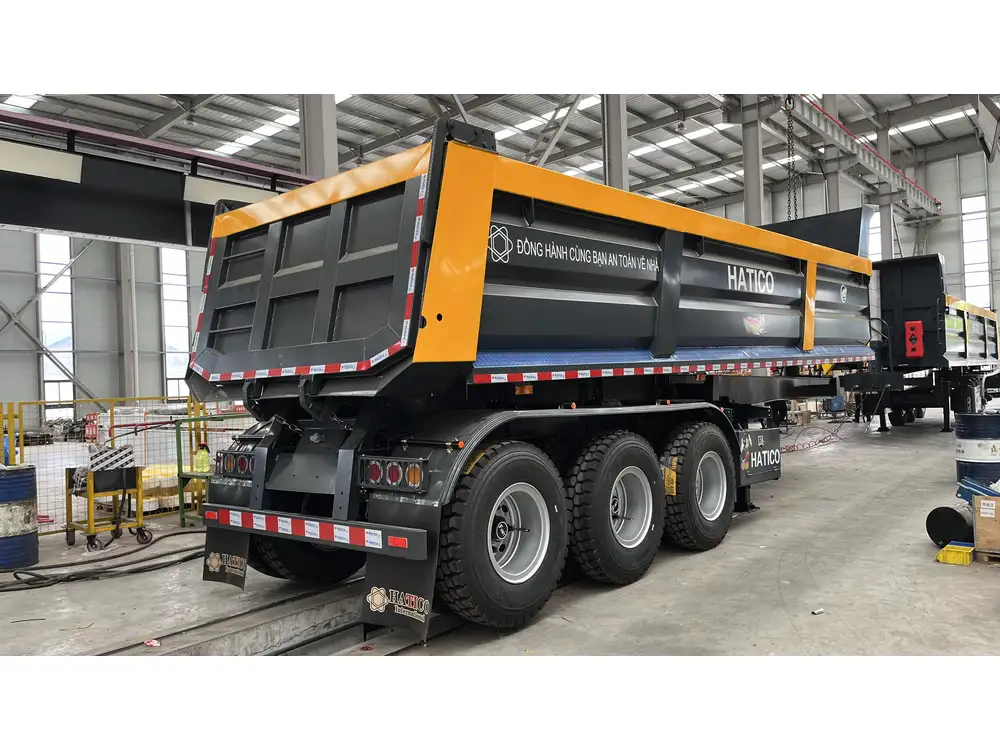
Rail Transport
Rail is ideal for bulk transportation over long distances. It offers cost-effectiveness and reduced environmental impact. However, it requires specialized rail tanker cars that meet safety regulations.
Pipeline Transport
Pipelines provide a continuous and efficient means of transporting large volumes of diesel fuel. They minimize handling costs and reduce the risk of spills. However, they require significant upfront investment and are best suited for fixed routes.
Comparison Table
| Transportation Mode | Capacity | Cost Efficiency | Flexibility | Safety | Environmental Impact |
|---|---|---|---|---|---|
| Road (Semi-Trailers) | Medium | Moderate | High | High | Moderate |
| Rail | High | High | Low | High | Low |
| Pipeline | Very High | Very High | Low | Very High | Very Low |
| Maritime | Very High | Moderate | Low | Moderate | High |
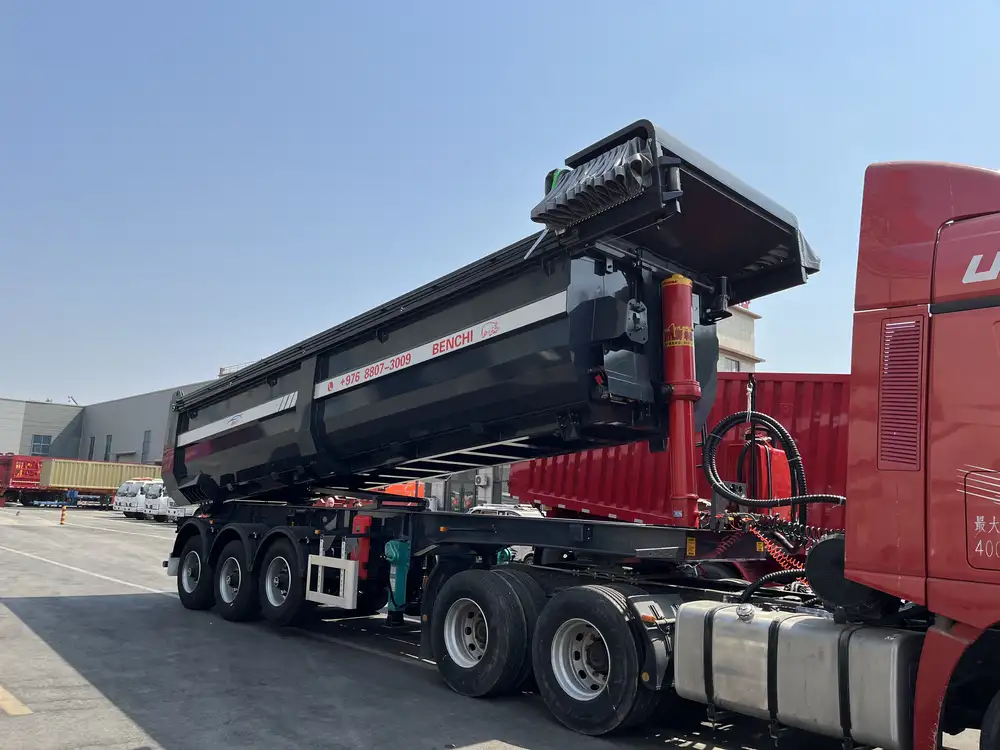
Selecting the Appropriate Semi-Trailer for Diesel Transport
Choosing the right semi-trailer is essential for the safe and efficient transport of diesel fuel. CarMax Vehicle offers a range of semi-trailers designed to meet diverse transportation needs.
Types of Semi-Trailers Suitable for Diesel
- Straight Trailers: Suitable for short to medium distances with standard loading requirements.
- Refrigerated Trailers: Maintain temperature-controlled environments for temperature-sensitive diesel products.
- Double-Wall Tankers: Provide enhanced safety features to prevent leaks and spills.
Features to Look For
When selecting a semi-trailer for diesel transport, consider the following features:
- Structural Integrity: Robust construction to withstand the rigors of transport.
- Safety Mechanisms: Features like emergency shut-off valves and spill containment systems.
- Efficient Loading/Unloading Systems: Minimizes downtime and enhances operational efficiency.
- Compliance with Standards: Adherence to international and local transportation regulations.
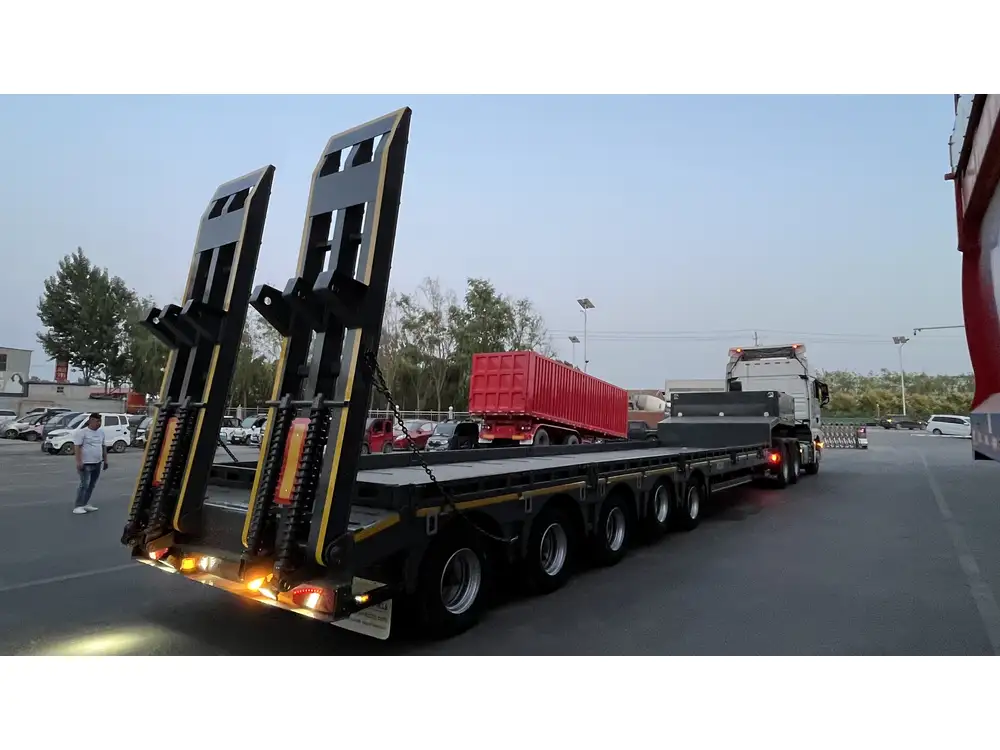
Why CarMax Trailer is Optimal
CarMax Trailer stands out due to:
- Innovative Design: Incorporates the latest technology for improved safety and efficiency.
- Customization: Tailors trailers to specific client requirements.
- Durability: Built to last, reducing the need for frequent replacements.
- Comprehensive Support: Offers maintenance and after-sales services to ensure uninterrupted operations.
Ensuring Compliance with Regulations
Compliance with transportation regulations is non-negotiable to avoid legal repercussions and ensure safety.
Overview of Regulations
Key regulatory bodies governing diesel fuel transportation include:
- Department of Transportation (DOT): Sets standards for road transport.
- Environmental Protection Agency (EPA): Regulates emissions and environmental impact.
- Occupational Safety and Health Administration (OSHA): Ensures workplace safety during handling.

Safety Standards
Adhering to safety standards involves:
- Proper Labeling: Clearly marking tanks with hazard symbols.
- Regular Inspections: Routine checks to identify and rectify potential issues.
- Training Programs: Educating personnel on safe handling practices.
Environmental Considerations
Minimizing environmental impact requires:
- Leak Detection Systems: Early identification of spills to prevent contamination.
- Eco-Friendly Materials: Utilizing recyclable and non-toxic materials in trailer construction.
- Efficient Routing: Planning routes to reduce carbon footprint.
Best Practices for Loading and Unloading Diesel Fuel
Proper procedures during loading and unloading are crucial to prevent accidents and ensure efficiency.
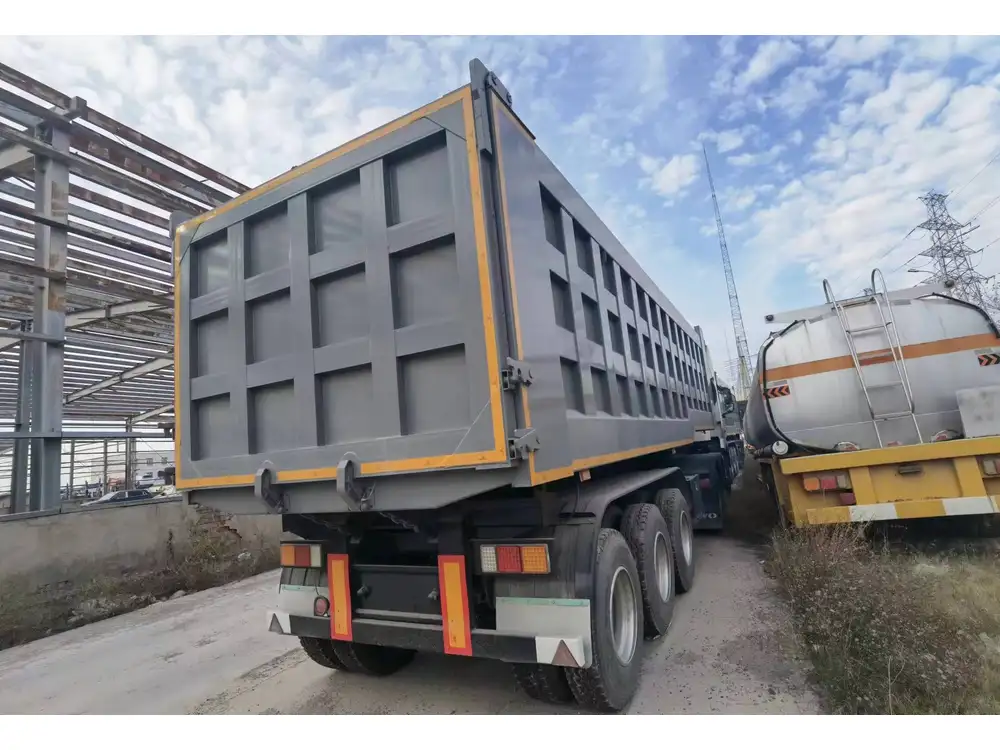
Step-by-Step Procedures
- Pre-Operation Inspection: Verify trailer integrity and compatibility with fuel type.
- Secure Connections: Ensure all hoses and valves are properly connected and sealed.
- Gradual Pumping: Control the flow rate to prevent sudden pressure changes.
- Monitoring: Continuously monitor fuel levels and system pressures during transfer.
- Final Checks: Inspect equipment post-operation for any signs of leakage or damage.
Safety Protocols
- Personal Protective Equipment (PPE): Mandatory use of gloves, goggles, and protective clothing.
- Fire Safety Measures: Availability of fire extinguishers and adherence to no-smoking policies.
- Emergency Shutdown Procedures: Quick access to shut-off valves in case of spills or accidents.
Maintenance and Inspection of Trailers
Regular maintenance and inspections are vital to ensure the longevity and reliability of your semi-trailers.

Regular Inspection Routines
- Daily Inspections: Check for visible damage, tire pressure, and fluid levels.
- Weekly Inspections: Examine braking systems, lighting, and electrical components.
- Monthly Inspections: Conduct comprehensive checks on structural integrity and safety mechanisms.
Preventive Maintenance Tips
- Scheduled Servicing: Adhere to manufacturer-recommended service intervals.
- Component Replacement: Replace worn-out parts promptly to avoid breakdowns.
- Cleaning Regimens: Keep trailers clean to prevent corrosion and contamination.
Technological Advancements in Diesel Fuel Transport
Embracing technology enhances the efficiency and safety of diesel fuel transportation.
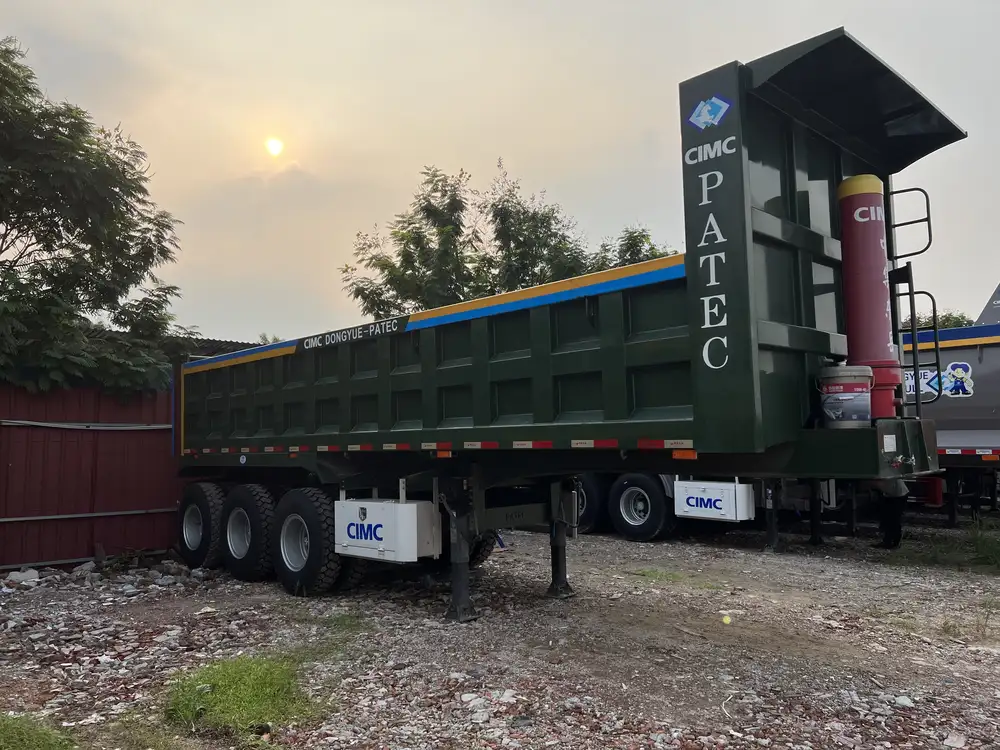
Innovations in Trailer Design
- Smart Tanks: Equipped with sensors to monitor fuel levels, temperature, and pressure in real-time.
- Aerodynamic Shapes: Reduce drag, improving fuel efficiency and lowering transportation costs.
- Modular Designs: Allow for easy customization and scalability based on transport needs.
Tracking and Monitoring Systems
- GPS Tracking: Provides real-time location data for route optimization and security.
- Telematics: Monitors vehicle performance, driver behavior, and fuel consumption.
- Automated Reporting: Generates compliance and maintenance reports, streamlining administrative tasks.
Cost Considerations and Efficiency
Balancing cost and efficiency is crucial for profitable diesel fuel transportation.

Factors Affecting Cost
- Fuel Prices: Fluctuations impact overall transportation expenses.
- Maintenance Costs: Regular upkeep ensures operational continuity but adds to expenses.
- Labor Costs: Skilled personnel command higher wages but enhance efficiency and safety.
- Regulatory Fees: Compliance with regulations may incur additional costs.
Strategies to Optimize Transport Efficiency
- Route Optimization: Use advanced software to plan the most efficient routes, reducing travel time and fuel consumption.
- Load Maximization: Ensure trailers are loaded to capacity without overloading, maximizing each trip’s profitability.
- Fuel Management Systems: Implement technologies that monitor and optimize fuel usage.
- Preventive Maintenance: Reduce unexpected breakdowns and associated costs through regular maintenance.
Risk Management and Emergency Preparedness
Mitigating risks and being prepared for emergencies safeguards your operations and reputation.
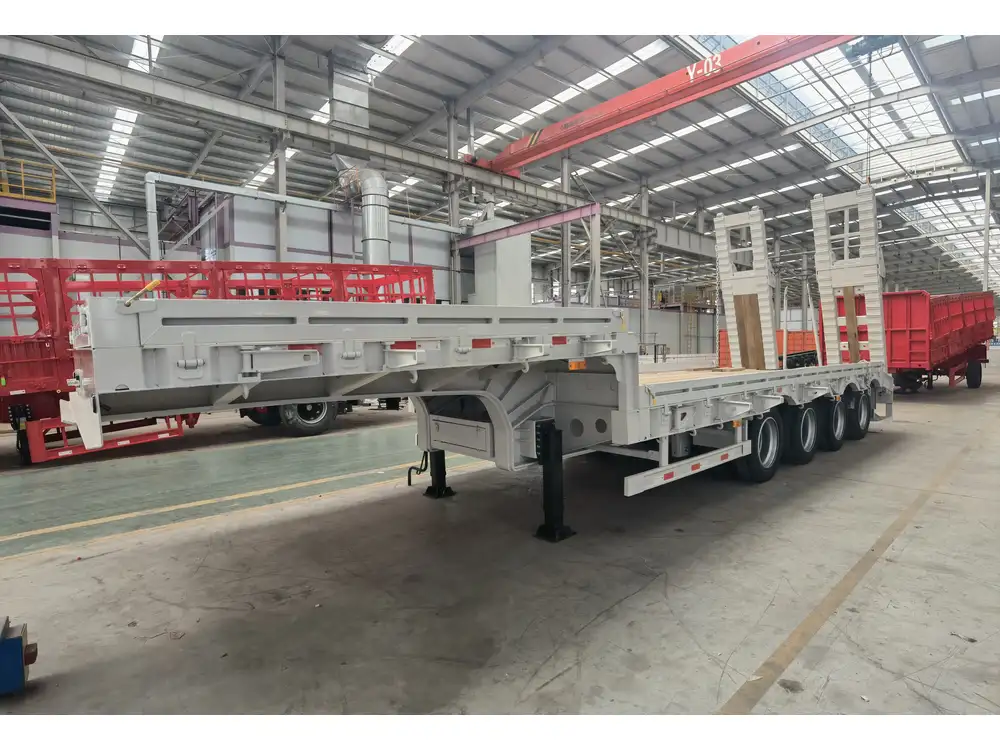
Identifying Potential Risks
- Spills and Leaks: Can lead to environmental damage and legal liabilities.
- Accidents: Result in injuries, fatalities, and property damage.
- Theft and Vandalism: Compromise the security of transported fuel.
- Mechanical Failures: Cause delays and increase maintenance costs.
Emergency Response Plans
- Spill Containment Kits: Equip trailers with materials to manage and clean spills effectively.
- Emergency Contacts: Maintain an updated list of contacts for quick communication during crises.
- Training Drills: Regularly conduct drills to ensure personnel are prepared to respond to emergencies.
- Incident Reporting Systems: Implement systems to document and analyze incidents, facilitating continuous improvement.
Leveraging CarMax Vehicle for Superior Diesel Fuel Transportation
At CarMax Vehicle, we are committed to providing top-tier solutions for diesel fuel transportation. Our expertise encompasses designing semi-trailers that meet the highest safety and efficiency standards, ensuring compliance with all regulatory requirements, and incorporating the latest technological advancements to optimize your logistics operations. Partner with us to experience seamless, reliable, and cost-effective diesel fuel transportation tailored to your specific needs.

Frequently Asked Questions
1. What are the key safety measures when transporting diesel fuel?
Safety measures include using double-wall tanks to prevent leaks, maintaining proper ventilation, conducting regular inspections, using appropriate PPE, and adhering to all regulatory standards to minimize the risk of accidents and environmental contamination.
2. How can I optimize the cost of transporting diesel fuel?
Cost optimization can be achieved through route planning to reduce fuel consumption, maximizing load capacity, implementing fuel management systems, performing regular maintenance to prevent costly breakdowns, and negotiating favorable rates with logistics partners.
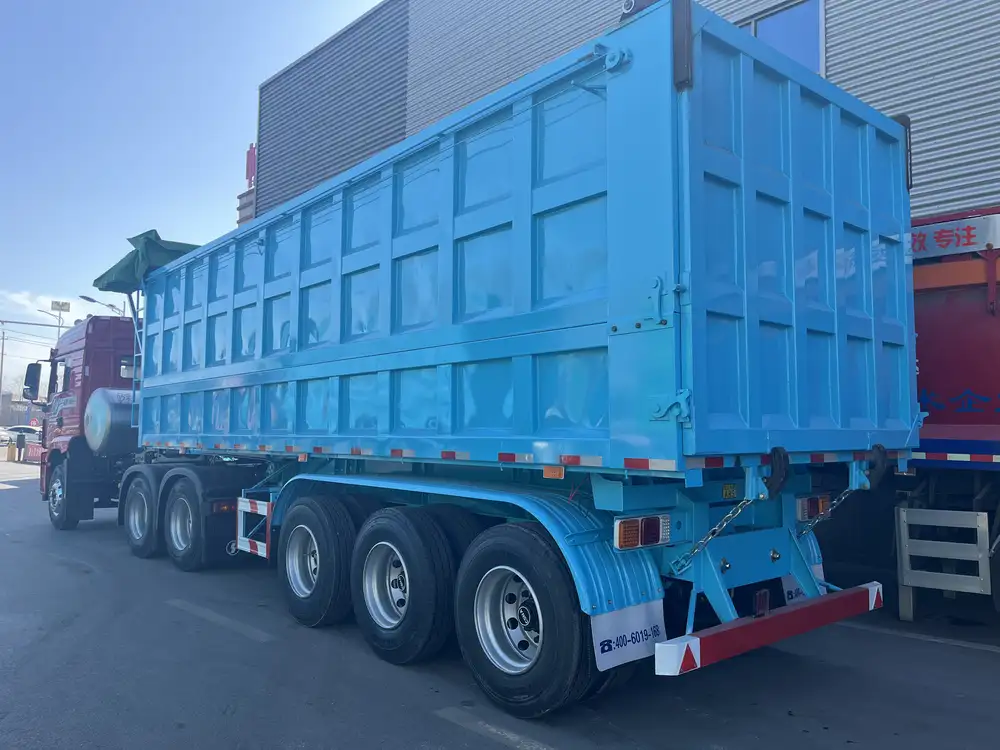
3. What regulatory requirements must be met for diesel fuel transportation?
Regulatory requirements vary by region but generally include compliance with Department of Transportation (DOT) standards, Environmental Protection Agency (EPA) regulations, proper labeling and documentation, and adherence to safety protocols to ensure the secure and legal transport of diesel fuel.
4. How does CarMax Vehicle ensure the quality of its semi-trailers?
We ensure quality through rigorous design and manufacturing processes, using high-grade materials, implementing advanced safety features, conducting thorough testing and inspections, and providing ongoing maintenance and support to ensure our trailers meet the highest industry standards.
5. What technologies are integrated into CarMax Trailer’s semi-trailers for diesel fuel transport?
Our semi-trailers feature smart tank systems with real-time monitoring sensors, GPS tracking for route optimization, telematics for performance monitoring, aerodynamic designs for fuel efficiency, and modular components for easy customization and scalability based on transportation needs.



